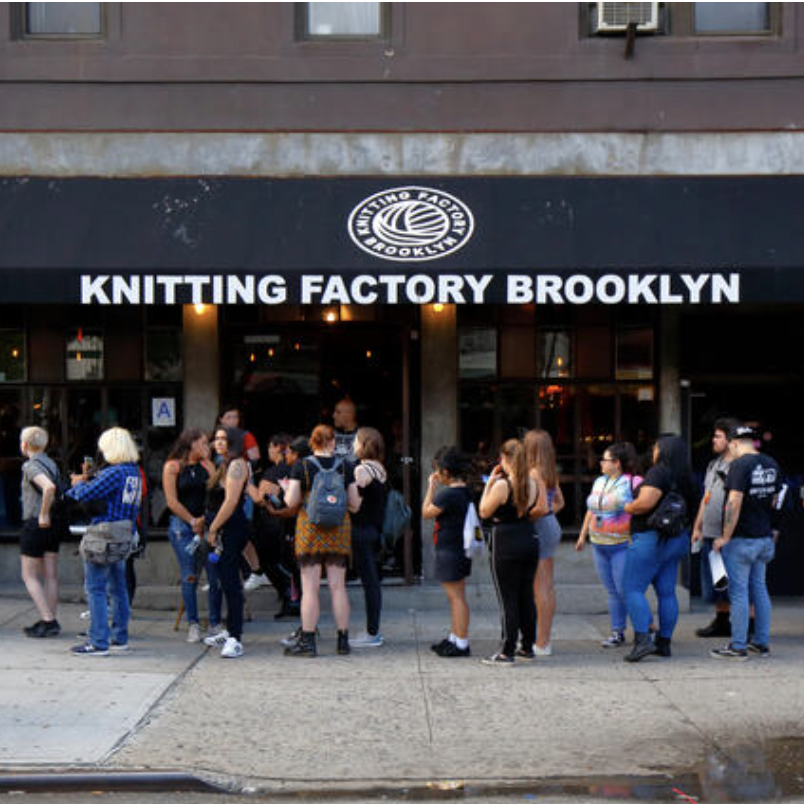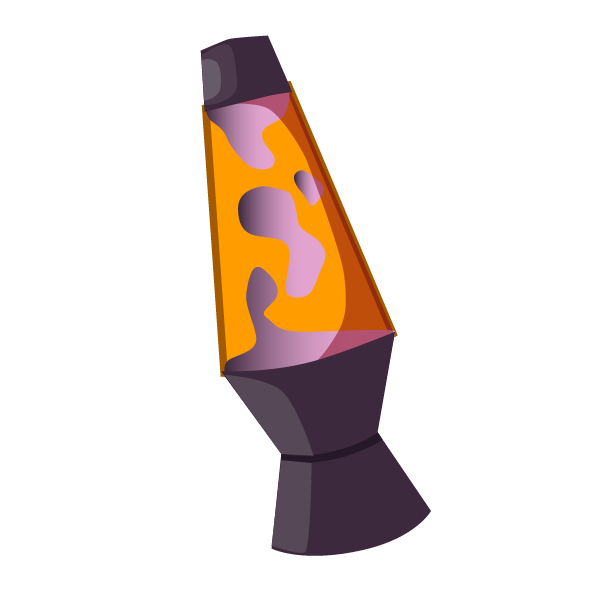By Calli Ferguson | August 21, 2022

In Loving Memory of The Knitting Factory BK and Hopes for the Future of Live Music Venues
On August 21st, The Knitting Factory Brooklyn had their last show in their legendary Williamsburg location after 13 years on Metropolitan Ave. The show headlined Hannibal Buress, paying homage to the venue’s history. The comedian had several gigs at the Knitting Factory BK early in his career and returned this summer for a final goodbye.
The night was met with heavy hearts that welcomed the laughs Burress shared with Brooklynites. The anticipated goodbye show followed the venue’s June announcement of their impending closing: “The past 13 years have been incredible…” Knitting Factory wrote, “…and we could not be more proud of our stay on Metropolitan Ave. We are going to miss the live music and comedy that graced the stage more than we can say. But it is time for the Knit to (once again) reinvent itself.” They continued by acknowledging the support they received through the hard times brought on by Covid times, and promising something new to come.
Of course, Knitting Factory is much more than the Williamsburg music venue most of us think of when we hear the name. When The Knitting Factory was founded in 1987 on Houston between Broadway and Bowery, for example, (with rent around $1,800 a month) it set its sights on being a multi-media art and performance space for pushing boundaries and building community. Fast forward to today, Knitting Factory Entertainment not only owns several venues across the country, but also manages events, festivals, and artists as well as record and produce music. KFE is a music world; The Knitting Factory Brooklyn is just a piece of it. But to those of us who loved it, that too was a world. It was a space all on its own of art, play, inspiration, and discovery.
Though the Brooklyn venue has promised opening a new location in some sort of new way, any time an iconic small music venue says goodbye, there is a certain amount of grief that comes up. It’s cliché, but true: artists, musicians, and lovers of those crafts have historically saturated this city for a reason. It’s because of them (you), that the particular energy we all gravitate here for exists. And it’s through small venues, galleries, and businesses that such art is able to find a home here.
The loss of the Knitting Factory Brooklyn is really sad for a couple reasons: First, there is some truth to the magic we associate with certain physical spaces. And this one nurtured so many local artists and housed so many memories. It also makes you question what the next iteration will be. How do you get a venue–even one as beloved as The Knitting Factory–to survive these days? Will it need to be larger or host a different sort of act? And if that’s the case, where will we go for intimate spaces and local artists if venues like this don’t survive?
Tensions around worry of loss and change in our live music scene became especially tangible during the pandemic. Reasonably so, of course– small businesses across industries and across the globe felt that. But as worries grew in those hard months, so did support for meaningful spaces. In the case of our beloved space, the New York Independent Venue Association (NYIVA) formed in 2020. They put forth the “Save our Stages” bill to support venues during lockdown. Hand in hand with many of our favorites small and mid-sized venues, The Knitting Factory was a part of the NYIVA.
The Association had traction and donations from the get go. The Talking Heads’ iconic frontman, David Byrne, even commented on the matter in an opinion piece he published in August of 2020:
Talking Heads were lucky–we were in the right place at the right time. Within a year or so, we could quit our day jobs as we made enough money to pay rent and groceries entirely from playing live shows in small clubs. Needless to say, rent was low and we were living modestly. But imagine! We could survive, sort of, playing small clubs…
… I came to realize that there’s a kind of ecosystem at work–the little clubs nurture the acts that will eventually play the 800-capacity clubs and those in turn feed acts into the 1,500-capacity small theaters and ballrooms. Those venues support acts that will eventually play 2,500-seat theaters and carry their own crews and support. Each level feeds into the next.
Byrne points to Lady Gaga coming up in NYC at iconic small venues like The Bitter End. He seems to be coming from the perspective that without The Bitter End, or Baby’s All Right, or The Knitting Factory…There is no Madison Square Garden; there is no Barclays Center, no Radio City Music Hall. It goes without saying that local venues and the musicians they host have been as important for New York City as New York City has been for nurturing the history of music as we know it. But things have changed immeasurably in the music industry since The Talking Heads came up. Artist discovery is certainly no exception.
Rising artists these days have to be more than artists. They have to be marketing experts, social media gurus, community leaders, and brand builders. And honestly, that all makes the issue even more poignant. Independent venues are the spaces where artists can just…play. Live music, truly, is a thing of its own; a song in concert and in a recording are the same subject depicted in completely different mediums. To have that under threat is a threat to the heart of the music itself.
Maybe the best step that’s in our power to take is to just keep going to concerts. Perhaps we go with the intention of finding our new favorite bands, spaces, and communities. And then tell all our friends about those experiences. Perhaps you, the live music lover, might consider yourself a part of the movement (or groovement) to keep the magic alive simply by continuing to see the magic within it. Maybe we can put our live-music, local-artist adoring energy into watering the seeds for beautiful newness to come in.
Update: As of 11.23.22, we learned from Brooklyn Vegan that Nick Bodor of Cake Shop and Bruar Falls has purchased the former Pyramid Club space at 101 Avenue A in Manhattan and plans to open a Rock-focused live music venue there in collaboration with The Knitting Factory. The target opening is March 2023 🙂.









